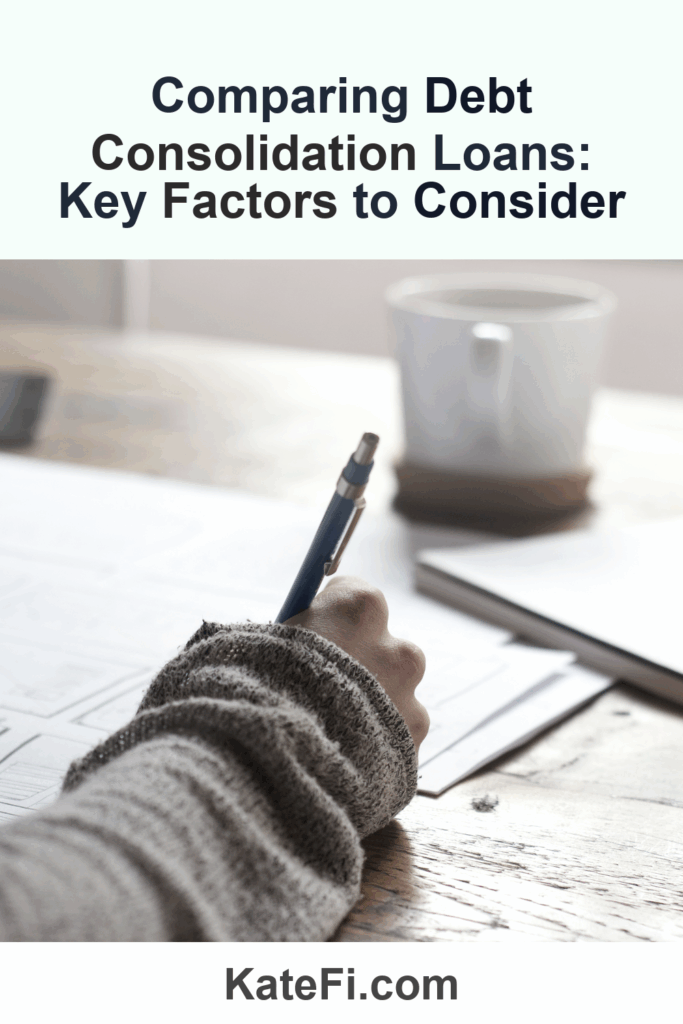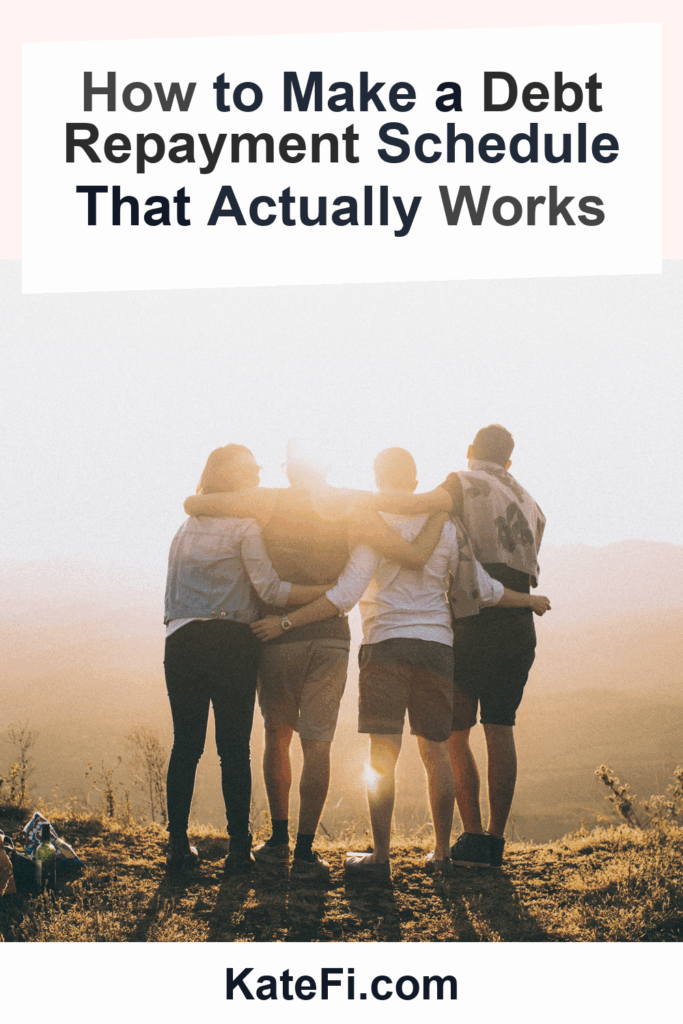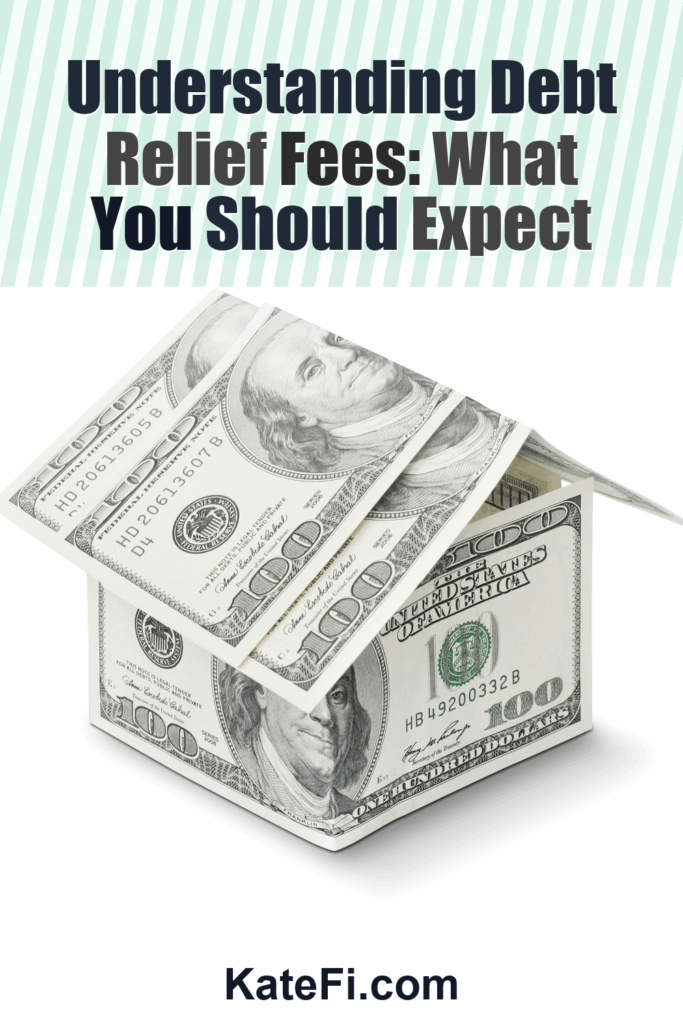How to Effectively Communicate with Creditors During Negotiations
Navigating the tricky waters of debt negotiations can be overwhelming. Whether you’re facing calls from creditors, considering debt settlement, or exploring other options, effective communication is key to finding a resolution. In this post, we’ll answer frequently asked questions about negotiating with creditors, the nuances between settlement, consolidation, and debt management plans (DMPs), and provide practical advice on how to get started. Plus, you can explore your options with a free consultation at KateFi.
Love our content? Show your support by following us — pretty please!🥺
FOLLOW ON PINTEREST
Hi! I’m Kate, the face behind KateFi.com—a blog all about making life easier and more affordable.
—
What Should I Know Before Communicating with Creditors?
What You’ll Learn on the Call
- Estimated timeline and monthly payment range
- How credit may be affected in the short term
- What documents to gather to move faster
Not available in IL, KS, OR, TN, UT, WV.
Q1: How do I prepare for a negotiation call with creditors?
A: Preparation is crucial. Before your call, gather important documents such as your account statement, budget, and a list of questions. Understand the total debt amount, any potential settlement offers you’ve seen, and what your monthly budget can afford.
Q2: What information do creditors need from me?
A: Creditors typically need to verify your identity and the details of your debt. Be prepared to provide your account number, personal identification information, and any supporting documents regarding your financial situation.
How Do I Communicate Effectively with Creditors?
Lower Your Unsecured Debt
If you have $5,000+ in credit card or personal loan debt, a free consult can review options like settlement or hardship plans.
- One-on-one call to review your debts and goals
- See potential monthly payment reductions
- No obligation to enroll
Not available in IL, KS, OR, TN, UT, WV.
Q3: What is the best way to start a negotiation?
A: Begin by being polite and direct. State your name, account number, and the reason for your call. For example, “Hello, my name is [Your Name], and I am calling about my account number [Your Account Number]. I’d like to discuss my current financial situation and explore options.”
Q4: What tone should I use during the negotiation?
A: Maintain a calm, professional tone. Avoid being confrontational or emotional, as this can lead to misunderstandings. A respectful approach often encourages creditors to work with you.
Q5: How do I present my hardship?
A: Clearly explain your financial hardship and be honest about your situation. For example, “Due to [reason such as job loss, medical bills], I am unable to keep up with my payments.”
Understanding Your Options: Settlement vs. Consolidation vs. DMP
Understand pros/cons of settlement vs consolidation vs DMP for your exact mix of debts.
Not available in IL, KS, OR, TN, UT, WV.
Q6: What is debt settlement, and who should consider it?
A: Debt settlement involves negotiating with creditors to pay a lump sum that is less than what you owe. It’s typically suitable for individuals facing financial hardship and is looking for a quick resolution. This option might lead to potential tax implications on forgiven debt.
Q7: How does debt consolidation work?
A: Debt consolidation involves combining multiple debts into a single loan with a potentially lower interest rate. This can make payments more manageable but may not reduce the overall debt amount. It’s a good option for those who want to simplify their payments.
Q8: What is a Debt Management Plan (DMP)?
A: A DMP is a structured repayment plan offered through credit counseling agencies. The agency negotiates lower interest rates and monthly payments with creditors. This is suitable for individuals who are committed to repaying their debts over time.
—
| Debt Relief Option | Best For | Key Considerations |
|---|---|---|
| Settlement | Financial hardship, quick relief | May impact credit score; possible tax implications. |
| Consolidation | Simplifying payments | Could extend payment period; total interest may be higher. |
| DMP | Long-term repayment commitment | Requires strict budgeting; less impact on credit. |
—
How to Navigate Challenges
Q9: What should I do if a creditor refuses to negotiate?
A: If a creditor is uncooperative, remain calm and ask to speak with a supervisor. You can also request a written explanation of their refusal to negotiate. This can sometimes open the door to new options.
Q10: How do I handle aggressive collection calls?
A: Know your rights. If calls become aggressive or threatening, inform the caller that you wish to discuss the matter in writing. You can also request verification of the debt.
Addressing Legal Matters
👉 Start Your Free Debt Relief Review
Not available in IL, KS, OR, TN, UT, WV.
Q11: What if my creditor threatens a lawsuit?
A: Remain calm and ask for written documentation regarding the debt. A lawsuit threat may be a tactic to intimidate you. Understanding your rights can help you manage the situation effectively.
Q12: Should I consult a lawyer?
A: If you’re facing legal action or feel overwhelmed, consulting with a lawyer specializing in consumer debt can be beneficial. They can provide specific legal advice and represent you in negotiations.
Improving Your Credit Impact
Q13: How will negotiating with creditors affect my credit?
A: Negotiating can have mixed effects on your credit score. While a settlement may negatively impact your score, successfully managing a DMP may have a less damaging effect. Always clarify with creditors how any agreements will be reported.
Q14: What documents should I gather for a faster review?
A: Collect pay stubs, bank statements, a list of debts, monthly expenses, and any correspondence with creditors. This documentation will make the negotiation process smoother and can help creditors understand your financial position.
—
Practical Tips for Successful Negotiations
Q15: What should I say during the negotiation?
A: A basic script could look like this:
“Hello, my name is [Your Name], and I’m calling regarding my account [Your Account Number]. I’m currently facing some financial challenges due to [reason]. I’d like to explore options to resolve my debt.”
Q16: What follow-up actions should I take after the negotiation?
A: After a negotiation, ensure you get any agreement in writing. This serves as proof of what you discussed and protects you in case of disputes later on. Follow up regularly to stay informed about your account.
—
Conclusion
Communicating with creditors can be challenging, but with the right preparation and approach, it is entirely manageable. Whether you choose debt settlement, consolidation, or a DMP, understanding your options will empower you to negotiate effectively. Don’t forget, you can get tailored advice through a free consultation at KateFi.
✅ See If You Qualify for Debt Relief
Remember, this content is for educational purposes only and should not be considered as legal, tax, or financial advice. Results and eligible programs vary by situation and state. Fees apply if you enroll and complete a program. Debt relief can affect credit; missed payments may lead to collections/lawsuits. Not available in IL, KS, OR, TN, UT, WV.
Use the resources available to you, stay organized, and you will find your path to debt relief.






















